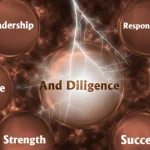Trauma, whether it stems from a single event or prolonged exposure to distressing circumstances, can leave deep emotional and psychological scars. Recovery is not a linear process; each individual’s journey is unique. Therapy plays a vital role in helping people in Salt Lake City, Logan, and Ogden navigate the complexities of trauma and reclaim their sense of self and well-being.
Here’s how therapy supports trauma recovery and why it’s essential to the healing process.
Understanding Trauma
Trauma can manifest in many ways, including emotional instability, physical symptoms, and disrupted relationships. Common sources of trauma include:
- Abuse (physical, emotional, or sexual)
- Natural disasters
- Serious accidents
- Witnessing or experiencing violence
- Loss or grief
Trauma often triggers fight, flight or freeze responses, which can persist long after the event, leading to conditions like post-traumatic stress disorder (PTSD), anxiety, or depression. Trauma therapy in Salt Lake City provides a structured environment to address these symptoms and promote healing.
Types of Therapy for Trauma Recovery
Several therapeutic approaches are designed to support individuals in processing and overcoming trauma:
1. Cognitive Behavioral Therapy (CBT)
CBT focuses on identifying and changing negative thought patterns that contribute to distress. For trauma survivors in Ogden, this might involve addressing feelings of guilt, self-blame, or helplessness.
2. Eye Movement Desensitization and Reprocessing (EMDR)
EMDR is a specialized therapy that helps reprocess traumatic memories, reducing their emotional intensity. By using guided eye movements or other bilateral stimulation, individuals can integrate painful memories without being overwhelmed.
3. Trauma-Focused Therapy
This approach prioritizes understanding the impact of trauma on an individual’s life and developing strategies to cope. It often includes psychoeducation, emotional regulation techniques, and exposure therapy.
4. Somatic Therapy
Trauma can be stored in the body, leading to chronic tension and other physical symptoms. Somatic therapy focuses on reconnecting with the body through mindfulness, breathwork, and gentle movement.
5. Group Therapy
Sharing experiences with others who have faced similar challenges in Logan can foster a sense of community and reduce feelings of isolation. Group therapy provides support and validation, helping individuals feel less alone in their struggles.
How Therapy Facilitates Healing
Therapy helps trauma survivors in Salt Lake City by providing a safe space to process emotions. Talking about traumatic experiences allows individuals to release suppressed feelings and make sense of them. This emotional processing is essential for alleviating the burden of unaddressed pain.
Therapists also equip clients with tools to manage triggers, flashbacks, and anxiety. Developing coping strategies can help individuals regain a sense of stability and control in their daily lives, enabling them to navigate challenges more effectively.
Trauma often distorts self-perception, leading to harmful beliefs about oneself or the world. Therapy in Ogden helps individuals reframe these negative beliefs, replacing them with healthier, more empowering perspectives. This shift is crucial for building self-esteem and fostering resilience.
Relationships can suffer significantly due to the impact of trauma. Therapy offers strategies for restoring trust and improving communication, helping individuals rebuild connections with loved ones. This restoration of relationships can provide a vital support system for ongoing recovery.
Finally, trauma can leave individuals feeling powerless and disconnected from their sense of agency. Trauma therapy in Logan empowers them to regain control over their lives and decisions, fostering a renewed sense of purpose and confidence.
What to Expect a Trauma Therapy
Starting therapy can be intimidating, but knowing what to expect can ease the process:
Initial Assessment: The trauma counselor will gather information about your history and current challenges to create a tailored treatment plan.
Building Trust: Establishing a safe, non-judgmental environment is crucial for effective therapy.
Progress at Your Pace: Healing takes time, and therapy moves at a comfortable pace.
Breaking the Stigma
Despite growing awareness, the stigma around seeking mental health support persists. It’s important to recognize that seeking therapy is a sign of strength, not weakness. Everyone deserves support and the opportunity to heal.
The role of therapy in trauma recovery cannot be overstated. It provides the tools, support, and guidance needed to navigate the aftermath of trauma and rebuild a fulfilling life. If you or someone you know in Salt Lake City, Ogden, or Logan is struggling with the effects of trauma, reaching out to a qualified therapist is a crucial step toward healing. Remember, recovery is possible, and help is available.







